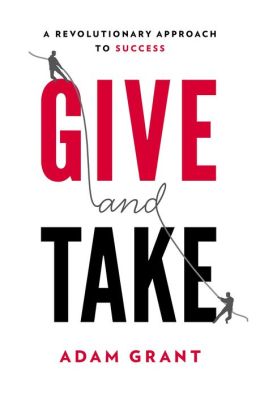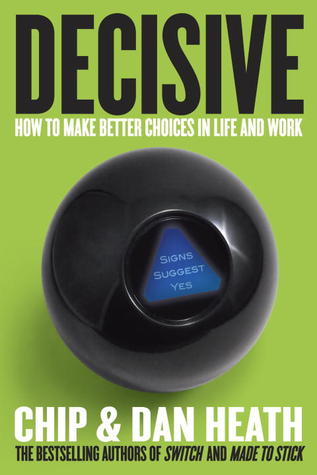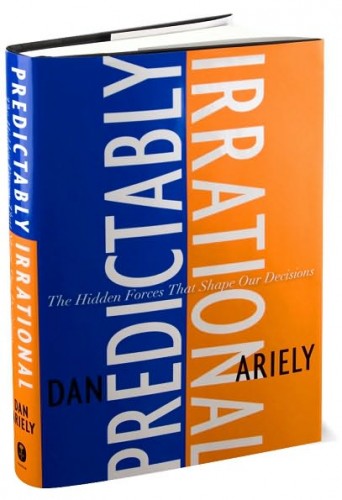Adam Grant Teaches You The Right Way To Give And Take
am Grant is the youngest tenured and highest rated professor at the Wharton School of Business at the University of Pennsylvania. He is the author of the excellent book, Give and Take: A Revolutionary Approach to Success. I spoke with Adam about how nice guys finish last and first, what really leads to expertise and how empathy can beat objectivity, among other things. Nice Guys Finish Last – And First Adam: The big idea is that there's three fundamental styles of interaction…
5 minutes
How much is your success dependent on those around you?
u'd think that doing thousands of heart surgeries would make you better at them. Not necessarily. Surgeons only got better at their home hospital: the one where they knew the team best and developed strong working relationships. Via Give and Take: A Revolutionary Approach to Success: When Huckman and Pisano examined the data, they discovered a remarkable pattern. Overall, the surgeons didn't get better with practice. They only got better at the specific hospital where they practiced. For every procedure they…
3 minutes
What’s the best way to influence others?
k for advice. Via Adam Grant's excellent Give and Take: A Revolutionary Approach to Success: New research shows that advice seeking is a surprisingly effective strategy for exercising influence when we lack authority. In one experiment, researcher Katie Liljenquist had people negotiate the possible sale of commercial property. When the sellers focused on their goal of getting the highest possible price, only 8 percent reached a successful agreement. When the sellers asked the buyers for advice on how to meet their…
2 minutes
To Help Others The Right Way, Do These 5 Things
ve posted a number of times about how helping others makes you happier. But I know this leaves some people scratching their heads: How much should I help others? How often? Will I be exploited? Will I end up resenting people I love if they don't reciprocate? We all know selfless givers who are taken advantage of and taken for granted. Nobody wants to feel like a sucker. So this simple thing doesn't seem so simple -- and it feels…
3 minutes
What are the secrets to making better decisions?
bsp; We all make a lot of bad decisions. With careers: Via Decisive: How to Make Better Choices in Life and Work: An American Bar Association survey found that 44% of lawyers would recommend that a young person not pursue a career in law. A study of 20,000 executive searches found that 40% of senior-level hires “are pushed out, fail or quit within 18 months.” More than half of teachers quit their jobs within four years. In fact, one study in…
3 minutes
How To Get A Raise: A Stanford Professor Explains The Secret
bsp; Jeffrey Pfeffer teaches organizational behavior at Stanford's Graduate School of Business and is the author of the fantastic book "Power: Why Some People Have It and Others Don't." I interviewed him about how power works, how you can increase your influence in the office, and the mistakes most people make when trying to get ahead. My conversation with Jeffrey was over 45 minutes, so for brevity’s sake I’m only going to post edited highlights here. Subscribers to my free weekly…
3 minutes
5 reasons everything you know about teamwork is wrong
bsp; 1) Teams aren't always a good idea Via Top Dog: The Science of Winning and Losing ...teams are not automatically better than the sum of their parts. They are often worse. This is termed “collaborative inhibition” or “process loss.”... People have a bias to romanticize the benefits of team productivity, while underestimating just how much time is wasted by teams. According to University of North Carolina professor Bradley Staats, productivity per person can drop 40% even on a small team... In…
3 minutes
Dan Ariely Explains When Your Irrational Behavior Is A Good Thing
bsp; Dan Ariely teaches psychology and behavioral economics at Duke University and is the bestselling author of three books I love: Predictably Irrational: The Hidden Forces That Shape Our Decisions The Upside of Irrationality: The Unexpected Benefits of Defying Logic The (Honest) Truth About Dishonesty: How We Lie to Everyone---Especially Ourselves Here's one of his TED talks: Dan has an online course called "A Beginner's Guide to Irrational Behavior". You can check it out here. He and I spoke about…
5 minutes







